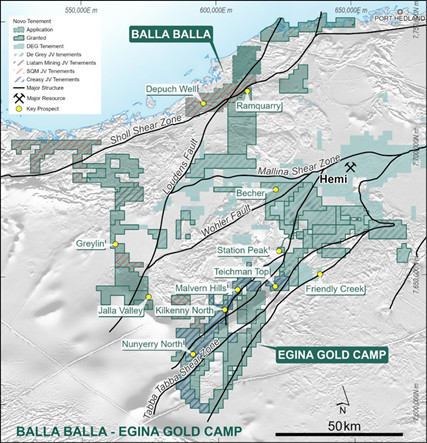The launch of Eco Design Index, an innovative tool for measuring and evaluating the environmental performance of its street furniture, strengthens JCDecaux’s eco-design approach
Paris, October 9th, 2024 – JCDecaux SE (Euronext Paris: DEC), the number one outdoor advertising company worldwide, is strengthening its eco-design approach, announcing the launch of Eco Design Index, an educational tool for evaluating and communicating the environmental performance of its furniture.
The Eco Design Index is a tool for measuring the environmental performance of JCDecaux products, marking a new milestone in the company’s long-standing commitment to eco-design. It makes it possible to assess the main environmental impacts of products, and also to compare their eco-design performance within the same family.
As a key new tool in the acceleration and systemisation of eco-design practices, the Eco Design Index will help raise awareness among stakeholders of these important issues and offers the opportunity to make ever more informed choices:
- internally, to help teams develop and promote solutions with a lower environmental impact;
- externally, to help local authorities and transport partners choose and deploy the most responsible furniture;
- in general, to promote the development and deployment of eco-designed furniture, contributing to more sustainable living spaces.
Based on JCDecaux’s experience in carrying out life cycle assessments (LCAs), this index aggregates quantitative results that take into account the 16 environmental indicators of the European Commission’s EF methodology, as well as data more specific to JCDecaux’s activities and its environmental challenges, complementary to those of LCA.
The Eco Design Index offers a multi-criteria approach according to two main themes:
- DESIGN AND MANUFACTURING: including the impact of raw materials, sustainability, circularity, sourcing and the end-of-life of products.
- OPERATION AND USE: including the issues of energy, water, consumables, maintenance, transport and the installation and decommission phases of the furniture.
The environmental performance of a product is evaluated on a scale of 0 to 10. This numerical score is then translated into an index from A to E for a simple and educational representation, “A” corresponding to the best evaluation.
The Eco Design Index will therefore provide a clear view of the continuous efforts made over recent years in terms of design and operation. For example, JCDecaux’s city information panels are, on average, 90% recyclable, and over the past ten years, their energy consumption have been cut by 60%, due to the introduction of more energy-efficient smart lighting technologies (LEDs, dimming and switching-off).
With this in mind, the Group aims to position its latest developments – upcycled bus shelter (60% reduction in CO2 emissions1), wood shelter (48% reduction in CO2 emissions1) and the reconditioning of its street furniture (71% reduction in CO22) – at the forefront, helping it to achieve its climate objectives.
This methodology, designed with the responsible innovation agency Maobi, is aligned with the European normative framework, the most demanding in the world, and has been audited by the independent third-party organisation EY.
Since its creation in 1964, JCDecaux has placed responsibility at the heart of its business model. The eco-design of furniture is a key lever for JCDecaux in the implementation of its 2030 ESG strategy and the achievement of the objectives of its carbon reduction trajectory validated by the SBTi – Net Zero Carbon by 2050. Therefore, the Eco Design Index makes it possible to strengthen and systemise its eco-design approach and to promote the sustainability of its products and their deployment to all its stakeholders.
Jean-Charles Decaux, Chairman of the Executive Board and Co-Chief Executive Officer of JCDecaux, said: “Reducing our environmental footprint has been part of JCDecaux’s business model since our company’s foundation, when our founder designed street furniture capable of lasting more than 30 years. Taking action to reduce the impact on resources of our furniture remains a permanent priority to achieve our climate commitments. Eco-design is at the heart of our 2030 ESG strategy, and a year after introducing a new generation of upcycled bus shelters, we are very proud to launch the Eco Design Index today. This measurement tool is based on the transparent and comparative assessments of the environmental impact of our products thanks to an independent and trusted third party. Highly innovative, it will enable JCDecaux to continue to support public and private procurement partners, an essential lever for energy reduction, through an approach based on quality and on the effective consideration of ambitious environmental and social criteria.”
Key Figures for JCDecaux
- 2023 revenue: €3,570.0m(a) – H1 2024 revenue: €1,807.6m(a)
- N°1 Out-of-Home Media company worldwide
- A daily audience of 850 million people in more than 80 countries
- 1,056,833 advertising panels worldwide
- Present in 3,918 cities with more than 10,000 inhabitants
- 11,650 employees
- JCDecaux is listed on the Eurolist of Euronext Paris and is part of the Euronext 100 and Euronext Family Business indexes
- JCDecaux’s Group carbon reduction trajectory has been approved by the SBTi and the company has joined the Euronext Paris CAC® SBT 1.5° index
- JCDecaux is recognised for its extra-financial performance in the FTSE4Good (3.8/5), CDP (A), MSCI (AAA), Sustainalytics (13.7), and has achieved Gold Medal status from EcoVadis
- 1st Out-of-Home Media company to join the RE100
- Leader in self-service bike rental scheme: pioneer in eco-friendly mobility
- N°1 worldwide in street furniture (630,196 advertising panels)
- N°1 worldwide in transport advertising with 153 airports and 258 contracts in metros, buses, trains and tramways (319,081 advertising panels)
- N°1 in Europe for billboards (85,743 advertising panels worldwide)
- N°1 in outdoor advertising in Europe (708,620 advertising panels)
- N°1 in outdoor advertising in Asia-Pacific (165,292 advertising panels)
- N°1 in outdoor advertising in Latin America (91,682 advertising panels)
- N°1 in outdoor advertising in Africa (25,337 advertising panels)
- N°1 in outdoor advertising in the Middle East (21,300 advertising panels)
(a) Adjusted revenue
For more information about JCDecaux, please visit jcdecaux.com.
Join us on Twitter, LinkedIn, Facebook, Instagram and YouTube.
Communications Department: Albert Asséraf
+33 (0) 1 30 79 79 10 – [email protected]
Investor Relations: Rémi Grisard
+33 (0) 1 30 79 79 93 – [email protected]
1 For the extraction and manufacturing phases vs a brand-new standard bus shelter
2 For the extraction and manufacturing phases with on-site reconditioning vs a brand-new standard bus shelter
Attachment
- 09-10-2024 # Ecoconception_UK





